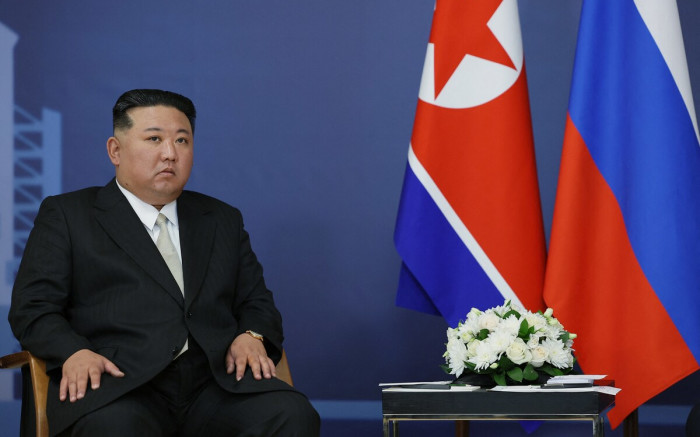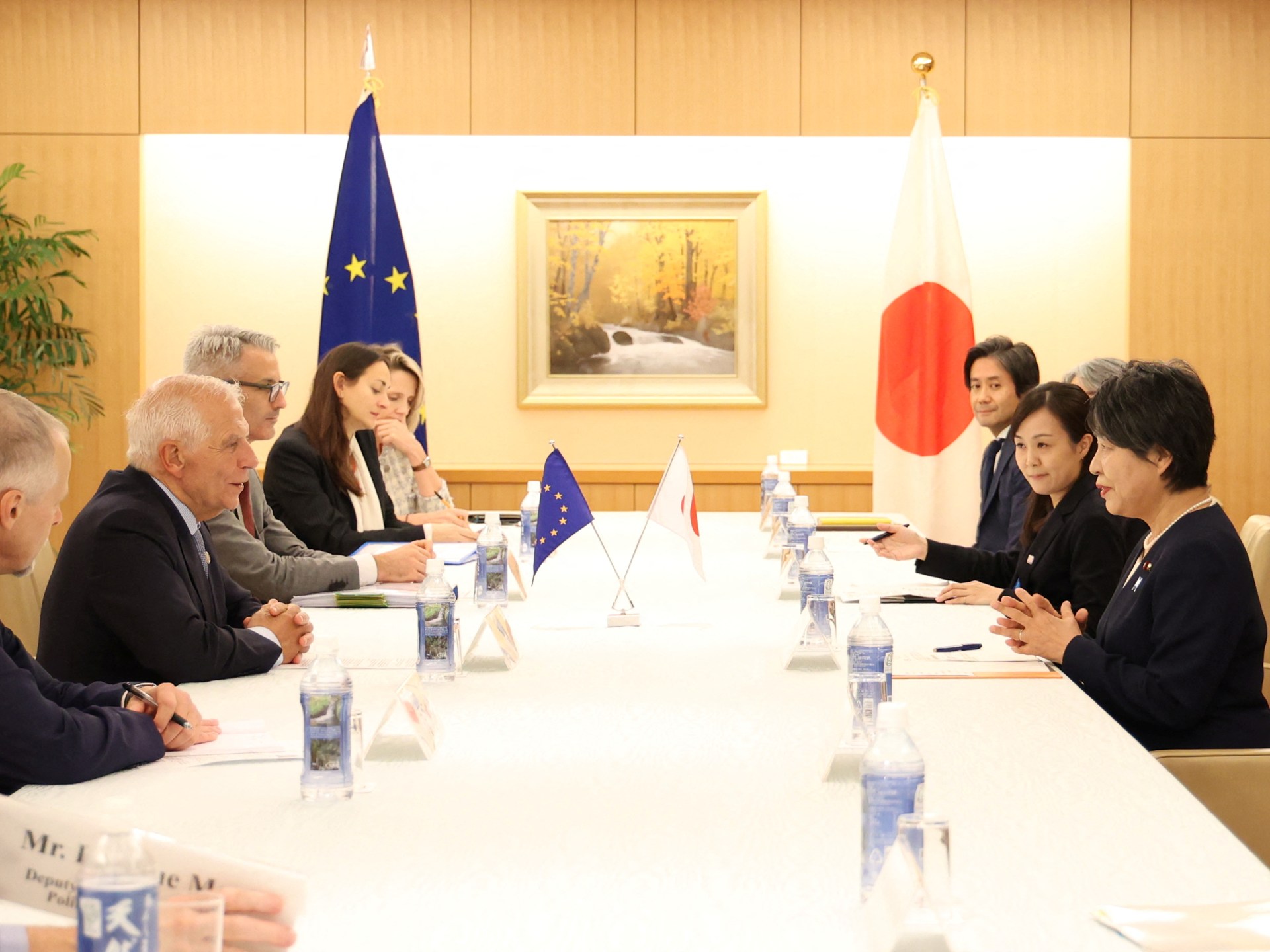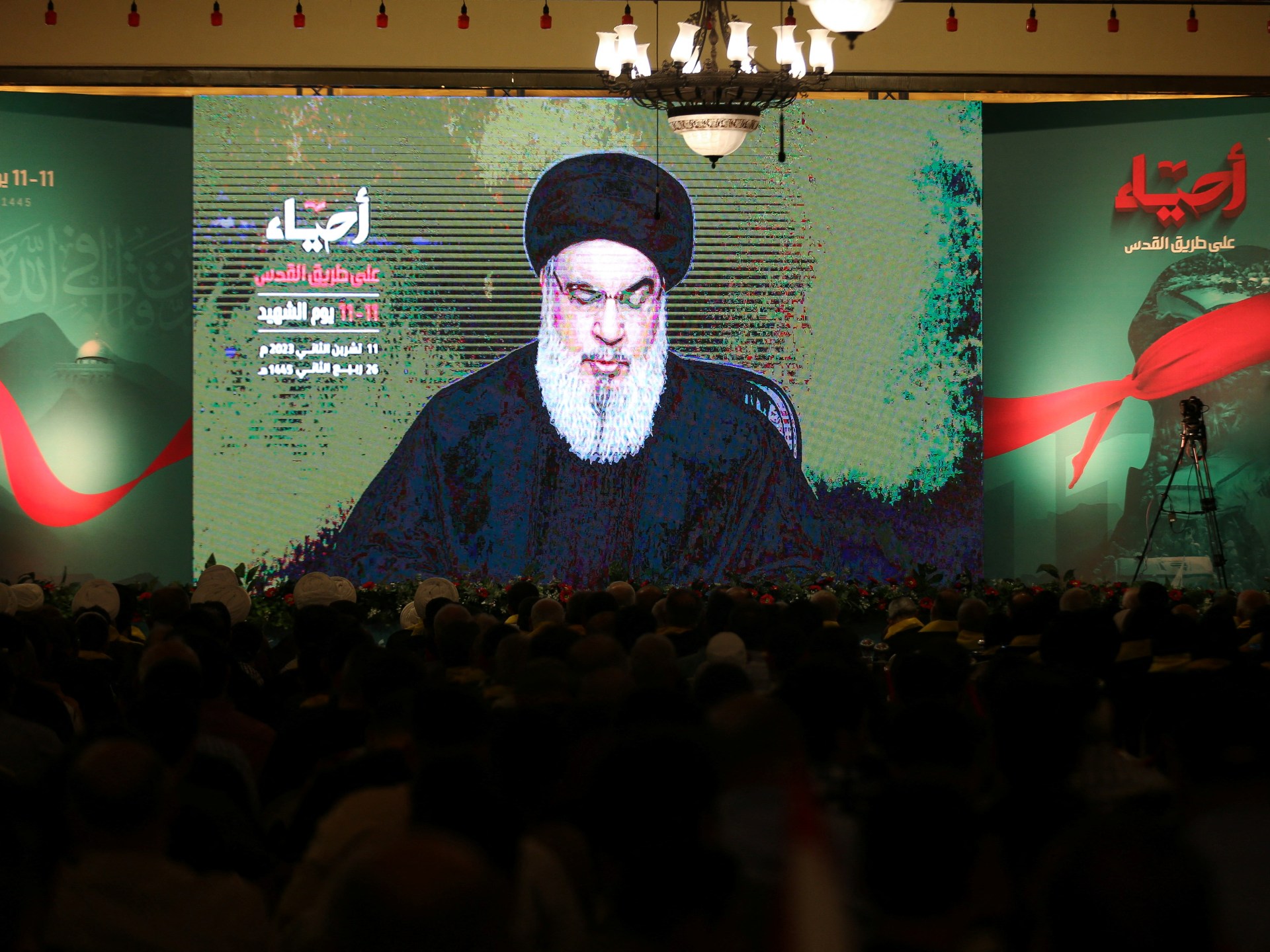
Kim said the launch of the missile, which could reach U.S. shores, was “a clear signal to enemy forces” and showed the country’s options should Washington make “a wrong decision against it.”
FILE: This pool image distributed by the Sputnik agency shows North Korea’s leader Kim Jong Un meeting with the Russian President on September 13, 2023 at the Vostochny Cosmodrome in the Amur Region. Image: Vladimir Smirnov/Pool/AFP
SEOUL, South Korea (AP) — North Korean leader Kim Jong Un has vowed to speed up his country’s nuclear buildup and warned Washington against making a “wrong decision” after overseeing the launch of the country’s most powerful ballistic missile, state media said on Tuesday.
Monday’s test launch of the solid-fuel submarine Hwasong-18 came a day after the nuclear submarine USS Missouri docked in Busan, and followed a warning from the United States and South Korea that a nuclear attack by Pyongyang would “bring the end of the Kim Regime” would mean. .
The two allies, along with Japan, activated a system on Tuesday to share real-time data on North Korean launches. This is part of their increased security cooperation in response to Pyongyang’s growing nuclear threat.
Kim said the launch of the missile, which could reach U.S. shores, was “a clear signal to enemy forces” and showed the country’s options should Washington make “a wrong decision against it,” the Korea Central News Agency said.
“A starting exercise [the] “The Hwasongpho-18 ICBM was staged as an important military operation to clearly demonstrate the overwhelming will and unparalleled strength of the DPRK’s nuclear strategic forces against the enemies,” KCNA said of Monday’s launch.
The North Korean leader, seen in pictures with his young daughter in a pink fur jacket, also outlined “some important new tasks for the development of the DPRK’s nuclear strategic forces,” KCNA added.
The Hwasong-18, the largest in North Korea’s arsenal, flew just over 1,000 kilometers and reached a maximum altitude of around 6,000 kilometers, it said, demonstrating “the combat capability of an intercontinental ballistic missile unit.”
The South Korean military said Monday that the ICBMs fired solid-fuel rockets, making the missiles easier to transport and firing faster than liquid-fuel versions.
The launch marked the third time the North had tested a solid-fuel ICBM, following launches in April and July, which analysts said was a sign of consistent efforts to improve the technology.
The Japanese Defense Ministry said the Hwasong-18 had a potential range of more than 15,000 kilometers, covering the entire United States.
STRENGTHENING THE ALLIANCE
Seoul and Washington have stepped up defense cooperation amid a record-breaking series of weapons tests by Pyongyang in 2023.
South Korean President Yoon Suk Yeol’s conservative government has also made a concerted effort to improve historically strained relations with Japan, the country’s former colonial master.
The United States and South Korea held the second meeting of their nuclear advisory group in Washington on Friday, discussing nuclear deterrence options in the event of a conflict with the North.
On Saturday they warned that a nuclear attack by Pyongyang on the United States or South Korea would mean the end of the Kim regime.
A North Korean Defense Ministry spokesman on Sunday criticized allies’ plans to add a nuclear operations exercise to annual joint military drills next year, calling it “an open declaration of nuclear confrontation.”
North Korea conducted a record number of banned weapons tests in 2023, including the November launch of a military satellite that reportedly provided images of U.S. and South Korean military sites.
The data-sharing system launched on Tuesday was part of an agreement reached last month between the defense chiefs of the United States, South Korea and Japan, which also included setting up multi-year plans for trilateral military exercises.
Pyongyang declared itself an “irreversible” nuclear power in 2022 and has repeatedly said it will never give up its nuclear program, which the regime sees as vital to its survival.
Since the first nuclear test in 2006, the United Nations Security Council has passed numerous resolutions calling on North Korea to end its nuclear and missile programs.






Recent Comments